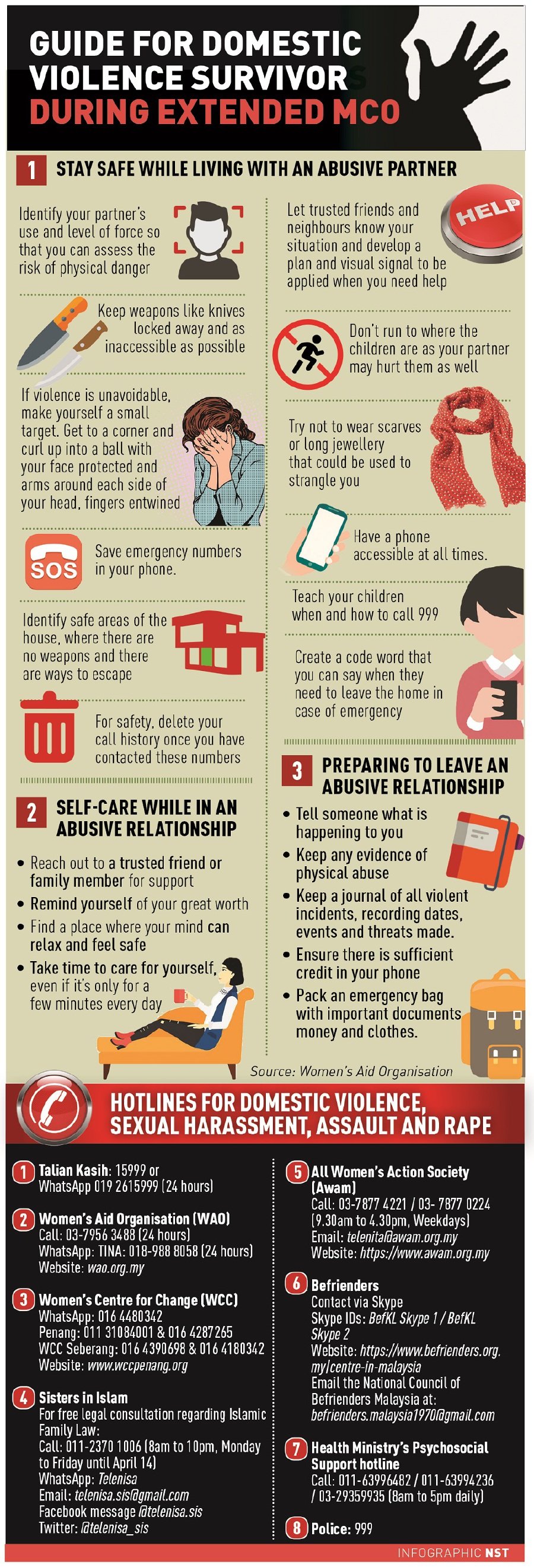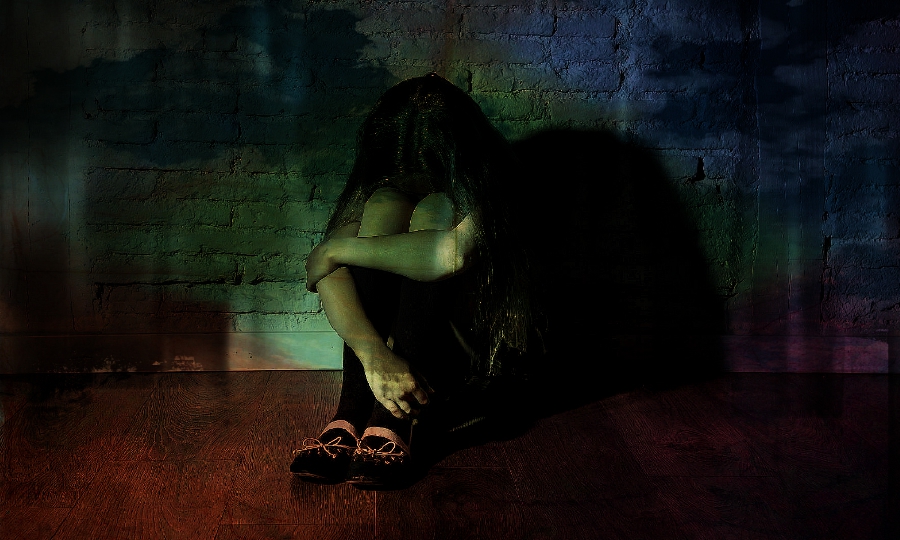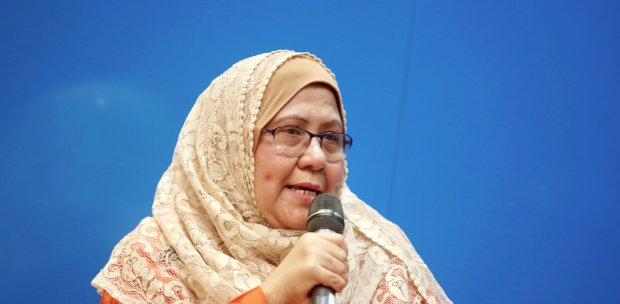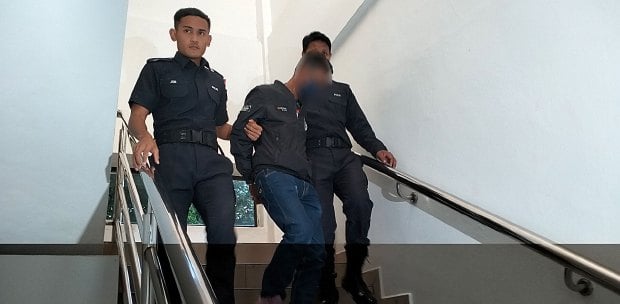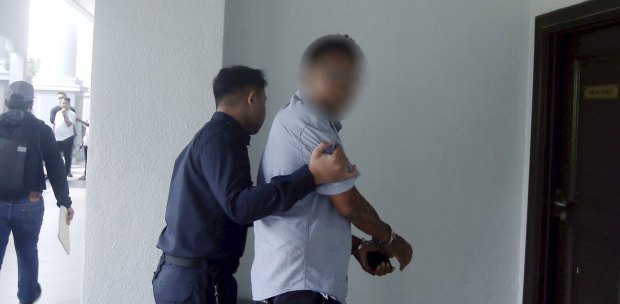KUALA LUMPUR: The Covid-19 pandemic and ensuing Movement Control Order (MCO) pose a hard time for everyone. But some people are having it worse.
While most Malaysians are doing reasonably well, working from home, sipping on coffee while catching up on their favourite TV shows, there are wives, husbands, partners and even children who are living a nightmare with no escape; spending each passing minute under the watchful eyes of their domestic abusers.
Psychologist and psychiatrist say the MCO has given rise to marital conflict and domestic violence, which could potentially lead to a surge in divorce cases post-MCO. They also cautioned of an increase in cases of child abuse and incest.
Dr Geshina Ayu Mat Saat, a psychologist and criminologist with Universiti Sains Malaysia said there are two types of factors — general and specific — that cause a spike in domestic violence cases during these trying times.
General factors, she said, include forced proximity, scarcity of resources, availability and frequency of triggers, increased opportunities and lack of a capable guardian or person to stop the abuse.
Other general factors are perpetrator traits (such as addictions, levels of hostility, personal world-view, sense of entitlement, need for power and control, ego levels) and victim traits (helpless-hopeless personality, dependent personality, provoking behaviours, low self-esteem, self-sacrifice mentality and lack of support).
In terms of specific factors, the range is diverse and they are normally sourced from the perpetrator and victim.
“For example, in incest, the predator has his or her own cognitive distortions and justifications.
“Some victims have been sexually groomed to accept or allow the incest to occur. In many cases, other family members are aware and know about it but either ignore, participate or allow it to continue,” she told the NST.
She said victims might suffer physical/emotional and psychological abuse.
She added that in cases of physical or emotional abuse, perpetrators often blame victims for causing the latter’s own suffering and punishment, and at the same time, minimising or justifying the perpetrator’s role in the abuse.
In psychological abuse, a perpetrator’s level of hostility, aggression, passive-aggressive anger, need for power and control influence the frequency and depth of abuse, she said.
“Over time, victims believe and accept the abuse and whatever actions they do become targets for the perpetrator to focus on to perform more emotional or psychological abuse.”
She said victims are typically safe when offenders are not around as physical distance is a key factor in this situation. However, with the MCO, victims and offenders occupy the same enclosed environment.
She said while no one should have to cope with abuse or violence, certain measures could be taken.
Dr Geshina said making the right people aware of what is going on is helpful as they can act on a survivor’s behalf and get help from social services.
“Fight back in subtle ways instead of head-on because such confrontations often escalate abuse.
Dr Geshina urged NGOs and relevant government agencies to conduct quick interventions, encourage victims to lodge reports, remove victims from offenders or vice-versa, monitor behaviours of abusive family members, obtain interim protection orders, and be proactive in helping victims.
Consultant psychiatrist Assoc Prof Dr Amer Siddiq Amer Nordin said that while domestic violence victims were generally women, men too are subject to abuse.
He said with men, the abuse is mainly verbal as these victims are bullied, belittled and humiliated.
“I’ve seen one who was physically abused too. But (most of the cases involving men are) mainly verbal abuse.
“There are also instances of violence among the lesbian, gay, bisexual and transgender (LGBT) community, where the abuse towards their partner is sexual in nature. It’s traumatic,” said Dr Amer.
When it came to marital issues, he cited what occured in China as an example, as the country recorded a divorce spike following its lockdown during the Covid-19 crisis.
He said such a situation could happen in Malaysia, as experts “have surely noted rising tensions among husband and wives.”
The government, he said, needed to acknowledge that this issue was real and should prepare for a spike in cases.


